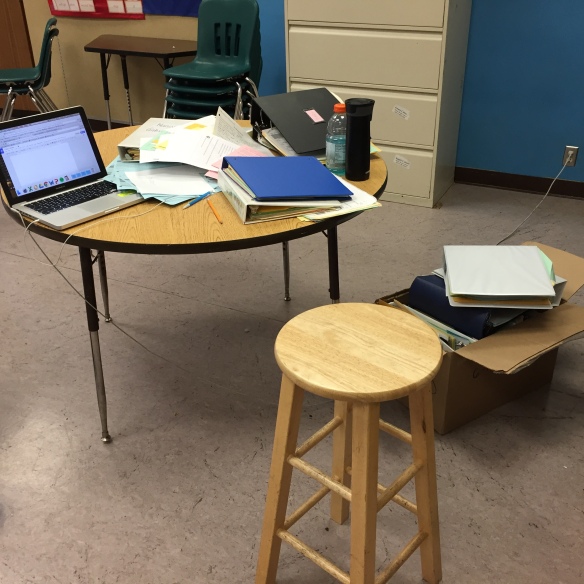September, 2019.
One of my colleagues is fond of talking about “problems to be solved and dilemmas to be managed”. Some things have an easy solution. Others don’t have a solution.
Teaching is one of these situations. In grad skool, we were always pushed to ask questions of students and not to tell answers. I forget the specific references in the literature, but asking instead of telling was meant to push them to rely on themselves and their classmates and not to overly rely on the teacher or a single correct answer. Being in the classroom, especially a mathematics classroom where students come to us with gaps in their education, I would find myself being pushed by students to “just tell us the answer, Mister!” The answer, of course, lies somewhere in the middle. I found things to be most effective when I pushed them first to talk to each other. If that didn’t work, surfacing what they each knew (which, especially for newer students, felt like teaching them to talk to each other, and is totally OK) was the next step. If students still didn’t know the answer, I’d sometimes step in, trying to position myself as the missing group member, building on what they already knew. I found that I couldn’t push them to further ask questions if they had already asked questions and hadn’t been exposed to the answer.
I find coaching to be a similar situation. Though I find I don’t remember much of my first few years of teaching (other than hanging group numbers on the classroom ceiling with my mentor teacher, relying heavily on the case managers who supported our students with Individualized Education Plans, and that one new student definitely called me by my mentor teacher’s name for well over a week after they arrived), I do remember that I was allowed relative freedom in a heavily supportive environment. If I had a question, I usually went to my teaching partner’s classroom right across the hall (sometimes in the middle of class, where we would hastily huddle to revise lesson plans that were not going well).
I was also fortunate enough to spend my first year as a mentor teacher working with a large group of mentors in the area where I work. We were exposed to a wide range of research-based structures (teaching checklists and a framework for quality education) and met at least once a month to discuss our practice as mentors. One of the themes that frequently arose was the idea of being a facilitative mentor versus a directive mentor. When do we ask our mentees what they think they should do? When do we suggest to them what they should do? When, if ever, do we tell them what to do?
As a result of my own early teaching experiences, I find myself being heavily facilitative. I was always given the freedom to explore my own teaching practice and decisions (for better or for worse) and with the help of so many collaborative teachers and coaches, things generally worked out. There are times when I wonder if I’m being too facilitative. There are more new students than usual at our school for this time of year. I’m still getting familiar with the arc of what a year of teaching looks like (or rather what the arc of teaching might look like for different teachers). Should I be more directive? I’m guessing for now, the answer is a dilemma to be managed, rather than a problem to be solved.


